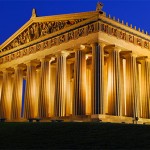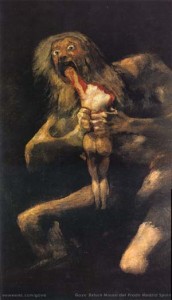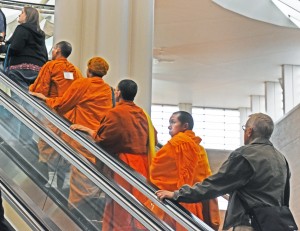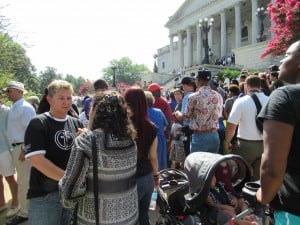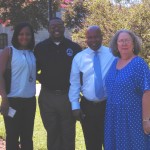On the 26th of January I am going to be speaking about the beliefs and practices of Wicca at our monthly Diversity Dinner here in Huntsville. The people who attend these informal potluck dinners come from a variety of different religious faiths. What draws them together is the sincere desire to better understand the teachings of other religions so as to create tolerance and accord among those of different faiths.
One of the things which creates discord and violence around the world is religious fundamentalism; the belief that there can only be one truth. Whether those who engage in such thinking are Christian, Muslim, Hindu, Pagan or something else entirely, fundamentalism seeks to divide the world between those who believe as they do and everybody else. It promotes the idea that those who believe as they do are “good” and those who do not are “bad”. What drives fundamentalism, in my opinion, is the fear that if they are wrong and there is more than one truth then their own faith will not be strong enough to counter that idea and everything they believe will collapse around them.
Those who seek to engage in interfaith work, on the other hand, are open to the idea that there are many different spiritual truths; that what is true to them might not be equally true to another. However, these differences are not seen as a threat but rather as enriching the human experience. When we break bread together at such events as the Diversity Dinner we acknowledge our common bonds within the greater human community. We put faces to the different spiritual journeys and understand the various ways in which people seek to comprehend the drive to connect to the Divine that seems to be present in all human beings. Here there is no division of bad versus good, but only an agreement that in terms of religious beliefs there is only “good” and “also good”. Different is no longer something to be feared but rather something to be embraced and celebrated.
One of the challenges of interfaith discussions is to find the common ground of belief that is shared across many differing religious systems. This may, on the face of it, appear to be a daunting task. There often appears to be insurmountable differences between monotheistic and polytheistic belief systems; between ancient religions and modern ones; and between those with beliefs grounded in sacred texts and those that are experiential in nature. For me the point at which all faiths converge and share a similarity is found when one takes into consideration the very simplest description of what a particular religion is trying to convey to its followers as the way to live rightly. In my opinion, what all spiritual paths are based upon are the twin concepts of 1) honoring the Divine by whatever name you know it, and 2) living rightly with your fellow man. I hope and pray that as more of us seek and find this common ground we can develop a greater tolerance for and understanding of our differences.
So, when I go to the Diversity Dinner this month I will talk about my own personal understanding of Wicca, I will talk about our history, our theology, our holy days, and our ethical beliefs. I intend to show them a typical altar setup and explain the various tools including the threatening athame. And I will be open to answer any questions that might be put to me. I will do all of this because a sound understanding of what Wicca is all about helps to dispel the fear of the unknown among those who have barely heard the term Wicca at all. However, I will also talk about those areas of our various belief systems that overlap, where there is shared belief, shared ethics, and shared hope for a better and more peaceful world.
What is sad, of course, is that those who attend such functions as the Diversity Dinner are few in number. We are far outnumbered by those who would rather fear and even hate that which is different. Nevertheless, we build a future of more understanding and tolerance with each person who has learned from sharing an evening with those of other faiths. Hopefully each time they encounter false information being spread in the future about some other religion they will be willing to step forward and say, “No, that’s not true.” As Confucius said, “The journey of a hundred miles begins with a single step.”


